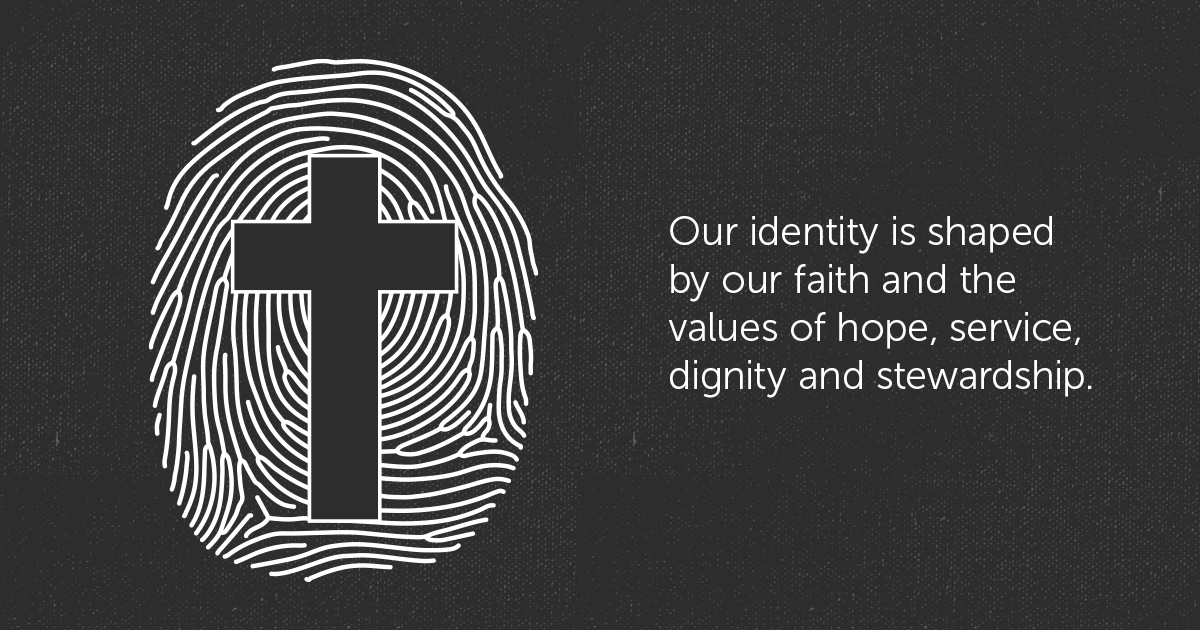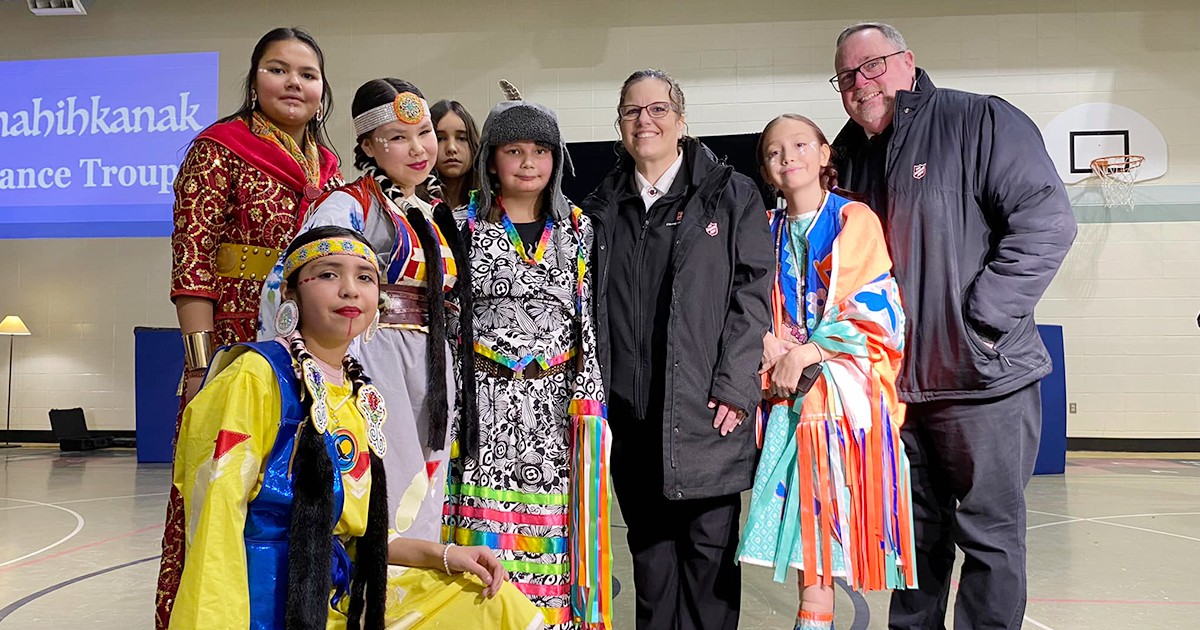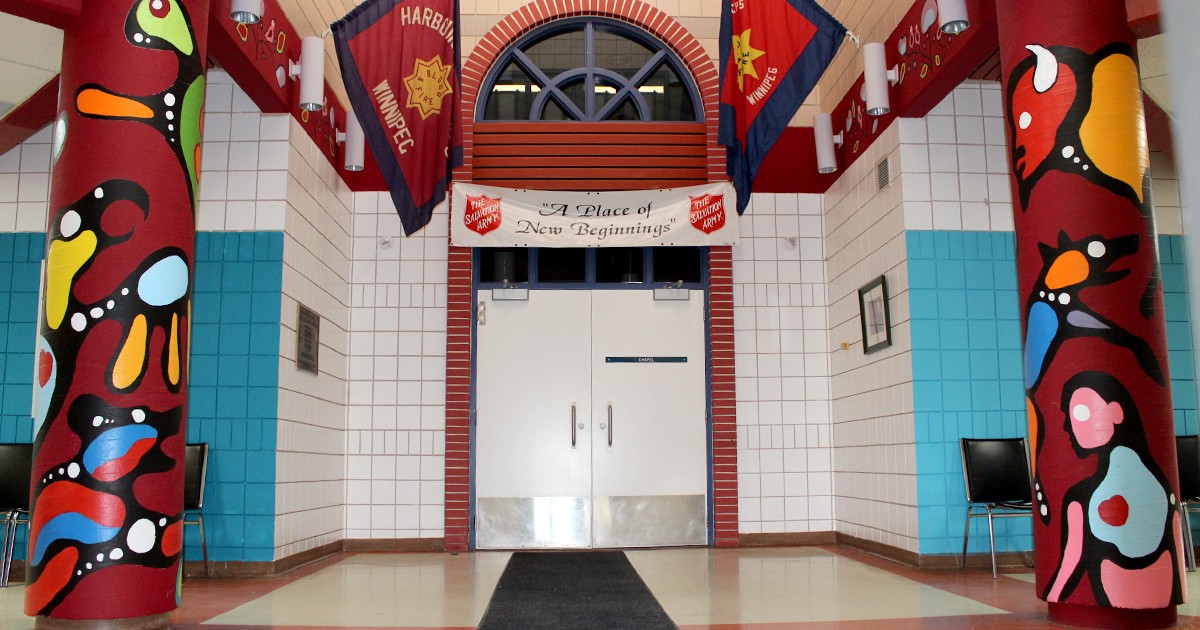Have you ever found yourself at a large gathering where you know absolutely no one? Whether it’s a classroom, a conference, a new appointment or your first day at a new job, there is always that initial moment of anxiety, especially for those of us who are introverts. Instinctively, we scan the room for someone with whom we think we can identify, someone who is like us.
Identity connects us. It gives us a sense of belonging and safety and is a key component in the development of self. In Ukraine, we are witnessing the power of national identity as a galvanizing force that manifests in remarkable acts of heroism, as individuals unite in the fight against oppression.
Identity can polarize us, too. It can set us against those with whom we don’t share an identity. Discrimination, racism, inequity, privilege, marginalization, aggression and injustice are some of the ugly expressions of misplaced attachments to a collective identity. As Canadians, we are just beginning to take responsibility for our historical abuse and mistreatment of those who first owned this land. The wounds are deep. The journey toward reconciliation will be long as we seek to respectfully redeem our past and create a new national identity that is inclusive and equitable.
The Old Testament offers some interesting perspectives on identity. In 587 BC, the city of Jerusalem was conquered and the people were sent into exile in Babylon, commencing a story of national trauma that would span decades of displacement, government-imposed oppression and slavery. The loss was great for a people who had once carried a distinct identity as chosen. “They lost the institutions that gave them unity and identity. They no longer had a temple, a king or a country,” says New Testament professor Dr. Craig Koester. Their experience is recorded in the books of the prophets.
Years later, when the Babylonian Empire fell to the expansive power of the Persians, the children of Judah experienced a relaxing of some oppressive restraints. They began to reflect upon who they once were and to dream of who they could be once again. As told in the books of Ezra and Nehemiah, a renewed sense of identity emerged as they realigned their hearts to God.
In the Book of Jonah, we find within the familiar Sunday school tale a cautionary lesson pertaining to identity. The story highlights the danger of inhabiting an identity to the extent that it becomes exclusive or insular. God’s mission was to rescue the people of Nineveh, an Assyrian city well-known for its cruelty and hostility toward Israel, from destruction. Jonah, however, was initially unable to accept that God’s blessing extended to people so unlike him, so he ran away. Fortunately for Nineveh, Jonah eventually aligned himself with God’s mission and the people of Nineveh were saved.
Through the Mobilize 2.0 initiative, The Salvation Army in Canada and Bermuda has been re-evaluating our territorial identity—who we are and who we need to be to be effective mission partners. Our identity is shaped by our faith and the values of hope, service, dignity and stewardship. As we allow our faith and values to transform and unite us, our vision and mission statements protect us from becoming exclusive. They act as a constant reminder that the blessing of transformation is to be shared with others. We are called to serve each other and the communities of our world.
This month, our territory will celebrate the ordination and commissioning of new officers. These officers are identified by the sessional name Messengers of Reconciliation. As they seek to live out their calling within this identity, they will share the good news of God’s hesed—that God, who is compassionate and gracious, slow to anger and abounding in love, faithfulness and forgiveness (see Exodus 34:6-7), longs to reconcile and redeem all things. He who created us and knows us best longs to show us all that we can be.
In his poem, Nosce Teipsum, Sir John Davies wrote, “So the best soul with her reflecting thought sees not herself without some light divine.” Here is the recognition that only in him may we find our truest identity and belonging.
In Exodus 34, when Moses came down from the mountain after his encounter with the goodness (hesed) of God, he was a changed man. The light of God shone through him. The Apostle Paul assures us, in his letter to the Philippians, that we, too, will shine like stars as we allow God’s love to transform our hearts and minds (see Philippians 2:15).
This is the blessing of God for all who identify as his children: “The Lord bless you and keep you; the Lord make his face shine on you and be gracious to you; the Lord lift his face toward you and give you peace” (Numbers 6:24-26).
Lt-Colonel Brian Armstrong is the secretary for personnel in the Canada and Bermuda Territory. He will take up a new appointment as divisional commander for the Prairie Division on July 1, 2022.
Illustration: Kencad/Lightstock.com










Excellent article. But what happens when tradition and culture negatively impacts mission and identity?
The uniform, bands, not depending on baptism and communion served as powerful connections to the culture that The Salvation Army emerged from. Now they are not attracting but interfering with salvation its ability to live out their identity. Thus the great exodus you have seen from the corps. I pray that this reaffirmation of identity leads to a sober and reflective stance on what needs to pass into history like the bonnets of my childhood. And what needs to be strengthened like the zeal too see people reconciled to our Lord.